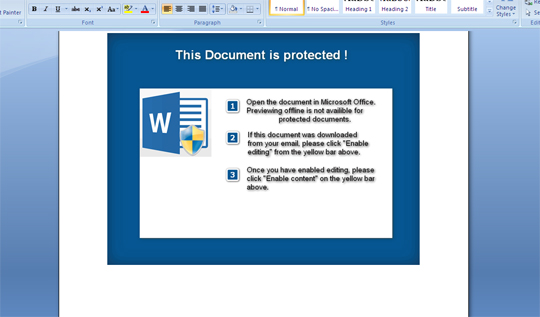W2KM_DLOADR.YYSWH
X97M/Downloader.ba (McAfee), Trojan-Downloader.VBS.Agent.cfi (Kaspersky), W97M.Downloader (Symantec)
Windows


Threat Type: Trojan
Destructiveness: No
Encrypted: Yes
In the wild: Yes
OVERVIEW
This Trojan arrives on a system as a file dropped by other malware or as a file downloaded unknowingly by users when visiting malicious sites.
It executes the downloaded files. As a result, malicious routines of the downloaded files are exhibited on the affected system.
TECHNICAL DETAILS
Arrival Details
This Trojan arrives on a system as a file dropped by other malware or as a file downloaded unknowingly by users when visiting malicious sites.
Download Routine
This Trojan connects to the following website(s) to download and execute a malicious file:
- http://queen.{BLOCKED}apartmentsinfortworth.com/seeds.exe
It saves the files it downloads using the following names:
- %User Temp%\seeds.exe
(Note: %User Temp% is the user's temporary folder, where it usually is C:\Documents and Settings\{user name}\Local Settings\Temp on Windows 2000, Windows Server 2003, and Windows XP (32- and 64-bit); C:\Users\{user name}\AppData\Local\Temp on Windows Vista (32- and 64-bit), Windows 7 (32- and 64-bit), Windows 8 (32- and 64-bit), Windows 8.1 (32- and 64-bit), Windows Server 2008, and Windows Server 2012.)
Trend Micro detects the dowloaded file as:
- TSPY_NEGASTEAL.E
It then executes the downloaded files. As a result, malicious routines of the downloaded files are exhibited on the affected system.
Other Details
This is the Trend Micro detection for Microsoft Word documents that are compromised through the insertion of a malicious macro.
NOTES:
The document contains the following fake details luring users to enable macro content:

SOLUTION
Step 1
Before doing any scans, Windows XP, Windows Vista, and Windows 7 users must disable System Restore to allow full scanning of their computers.
Step 2
Note that not all files, folders, and registry keys and entries are installed on your computer during this malware's/spyware's/grayware's execution. This may be due to incomplete installation or other operating system conditions. If you do not find the same files/folders/registry information, please proceed to the next step.
Step 3
Remove malware/grayware files dropped/downloaded by W2KM_DLOADR.YYSWH. (Note: Please skip this step if the threats listed below have already been removed.)
- TSPY_NEGASTEAL.E
Step 4
Scan your computer with your Trend Micro product to delete files detected as W2KM_DLOADR.YYSWH. If the detected files have already been cleaned, deleted, or quarantined by your Trend Micro product, no further step is required. You may opt to simply delete the quarantined files. Please check this Knowledge Base page for more information.
Step 5
Enable the macro virus protection in Microsoft Office Applications
Did this description help? Tell us how we did.


